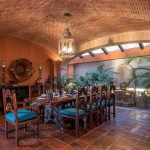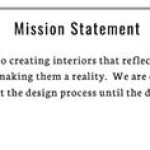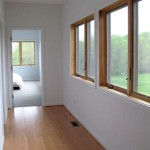Hospitality Interior Designers: Crafting Inviting and Functional Spaces
Hospitality interior design is a specialized field that focuses on creating aesthetically pleasing and functional spaces for hotels, restaurants, bars, spas, and other commercial properties. Hospitality interior designers possess a unique blend of creativity, functionality, and business acumen, striving to enhance the guest experience and boost the profitability of their clients. Their responsibility encompasses everything from the initial concept and design development to the selection of furnishings, lighting, and materials, ensuring that the final outcome aligns with the desired brand identity, target audience, and operational needs.
Understanding the Unique Demands of Hospitality Design
Designing for hospitality settings presents distinct challenges compared to residential or commercial design. Hospitality interior designers must cater to the specific requirements of a diverse clientele and consider various factors that impact guest comfort and satisfaction. The design must be not only visually appealing but also durable, easy to maintain, and compliant with safety regulations.
For instance, in hotel rooms, designers must balance privacy with accessibility, create spaces that are comfortable for both short and long stays, and incorporate features that meet the needs of different demographics. In restaurants, the design must facilitate smooth service, create an inviting atmosphere, and consider factors like noise levels, lighting, and seating arrangements that contribute to a positive dining experience. The success of a hospitality interior designer lies in their ability to understand and respond to these unique demands, ensuring that the space is both functional and aesthetically pleasing.
Key Skills of Hospitality Interior Designers
Hospitality interior designers possess a unique skillset that enables them to successfully navigate the complexities of this field. These skills encompass both creative and technical aspects, allowing them to translate client visions into tangible realities.
1. Aesthetic Vision and Design Expertise:
A strong aesthetic sensibility is paramount for hospitality interior designers. They must be able to translate brands, concepts, and target audiences into visual languages that resonate with guests. This includes understanding color palettes, material selections, furniture styling, and creating cohesive spaces that evoke the desired mood and atmosphere.
2. Functionality and Space Planning:
Beyond aesthetics, hospitality interior designers must prioritize the functionality of the space. They need to understand the flow of traffic, optimize space utilization, and ensure the design meets the practical needs of both guests and staff. This involves planning seating arrangements, designing efficient circulation patterns, and incorporating practical elements like storage solutions, lighting schemes, and accessibility features.
3. Budget Management and Project Coordination:
Hospitality interior designers often manage large-scale projects with complex budgets. They need to be adept at cost estimation, procurement, and project management, ensuring that the final design meets the budget constraints and project timelines. Effective communication with contractors, suppliers, and clients is crucial to ensure a smooth and successful project execution.
The Importance of Collaboration in Hospitality Interior Design
Hospitality interior design rarely occurs in isolation. It requires close collaboration with various stakeholders, including architects, contractors, clients, and sometimes even marketing teams. Designers must be able to effectively communicate their design intent, listen to client feedback, and adapt to evolving project needs. Collaborative efforts ensure that the final outcome aligns with the client's vision, budget, and operational requirements.
This collaborative approach extends to understanding the needs of the target audience. Designers conduct thorough research to understand the preferences, demographics, and expectations of the guest profile. This research helps shape the design decisions, ensuring that the space resonates with and caters to the needs of the intended audience.
Hospitality interior designers play a pivotal role in creating spaces that enhance the guest experience and contribute to the success of hospitality businesses. Their unique skills and collaborative approach are essential for translating client visions into functional, inviting, and memorable spaces. From the initial concept development to the final details, they ensure that each element contributes to a seamless and enjoyable guest journey.

Hospitality Leisure Interior Design Penketh Group

The Ga Group Masters Of Hospitality Interior Design Hotel Designs

5 Ways To Improve Your Hospitality Interior Design

New Interiors Hotels Elevating Hospitality Design For Travel Archdaily

Hba The Hospitality Interior Design Firm To Keep An Eye Out For

The Best Hospitality Interiors Of 2024 Milan Design Agenda

Top 6 Hospitality Design Firms Of 2024

Hospitality Expertise Gensler

Lau Maugoust The Master Of Hospitality Interior Design Paris Agenda

Interior Design Ramaker And Associates








